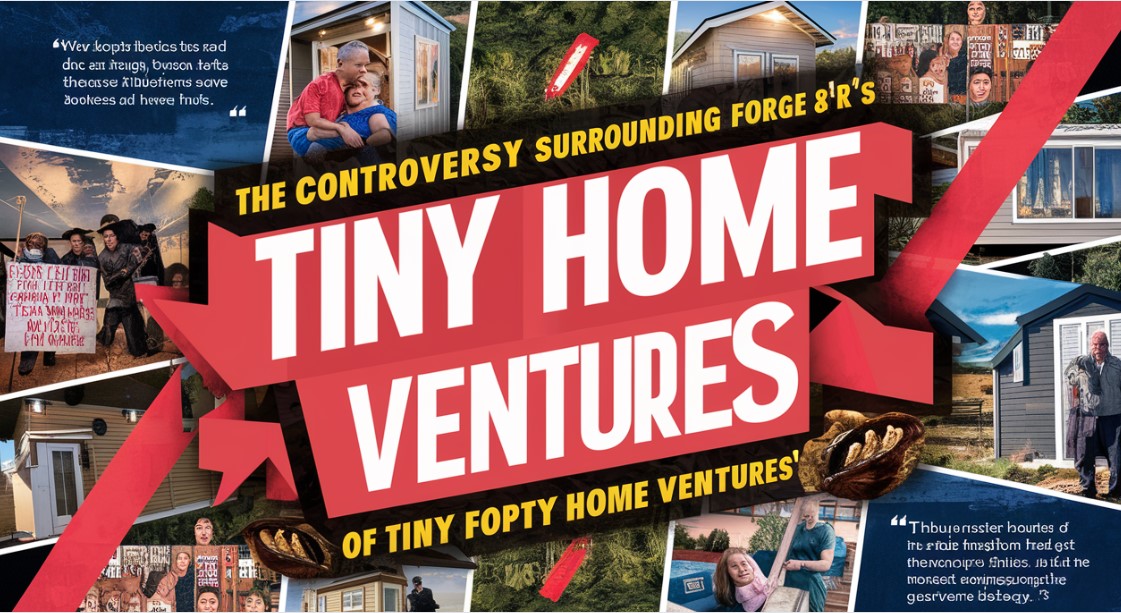Introduction to the Dispute
In recent times, the serene campgrounds of Ontario have become the battleground for a heated dispute involving campground residents, a Hamilton-based investment firm named Forge & Foster, and local government authorities. This conflict has drawn widespread attention due to its implications on property rights, zoning laws, and the affordability of alternative living solutions in the face of economic challenges.
The Heart of the Matter: Legal and Financial Struggles
The Plight of Campground Residents
The controversy first came to light when Larry DeCorte and Jodi Ford, along with other residents, discovered that their investments in what they believed were their dream retirement homes—luxury RVs stationed along the picturesque Twenty Mile Creek in Jordan—were deemed illegal by government authorities. This revelation was not only a shock but also a financial blow to the residents, who had invested hundreds of thousands of dollars into these properties.Similarly, in the Ottawa Valley, Deanna Charlebois and a group of trailer campers found themselves in a financial predicament when the new owner of their campground unexpectedly doubled the rental fees after they had already paid for the season. This action prompted the group to hire a lawyer to contest the steep increase, highlighting the broader issue of campground residents facing sudden and unaffordable fee hikes.
Forge & Foster’s Response
Forge & Foster, the company at the center of these controversies, has been vocal about its stance. The firm has initiated court appeals to contest the alleged building violations that have led to the threatened evictions of residents. They argue that the zoning orders issued by the city of Hamilton are not only unjust but are also causing undue hardship to individuals who have invested their life savings into these properties. Furthermore, Forge & Foster attributes the spike in resort fees to external economic factors, such as high interest rates and inflation, which have impacted their operating costs.
The Broader Implications
The Impact on the Community
The disputes have had a profound impact on the affected communities. Residents who envisioned a peaceful retirement or a tranquil getaway now find themselves embroiled in legal battles and financial uncertainty. The sense of community and trust that once flourished within these campgrounds has been eroded, replaced by frustration and anxiety over the future.
Zoning Laws and Affordable Housing
The situation also raises important questions about zoning laws and their application to alternative living solutions like tiny homes and RVs. As more individuals look for affordable housing options, the clash between traditional zoning regulations and the evolving needs of the population has become increasingly apparent. This case exemplifies the challenges of balancing regulatory compliance with the demand for innovative and cost-effective housing solutions.
Economic Factors at Play
The role of economic factors, such as interest rates and inflation, in exacerbating the situation cannot be overlooked. These elements have contributed to the financial strain experienced by both the residents and Forge & Foster, highlighting the vulnerability of alternative housing models to broader economic trends.
Looking Ahead: The Path Forward
As the legal battles continue, the future of the campground residents and Forge & Foster’s tiny home ventures remains uncertain. The outcomes of these disputes will likely have significant implications for zoning laws, property rights, and the viability of alternative living solutions in Ontario and beyond.
The Need for Dialogue and Compromise
To navigate these challenges, a dialogue between all stakeholders—residents, Forge & Foster, and government authorities—is essential. Finding a middle ground that respects the rights and investments of residents while ensuring compliance with zoning regulations and addressing economic realities is crucial for resolving the conflict and preventing similar issues in the future.
The Role of Policy and Innovation
Moreover, this situation underscores the need for policy innovation that accommodates new housing models and reflects the changing needs of society. By revising outdated zoning laws and exploring alternative approaches to housing affordability, policymakers can help prevent conflicts like the one involving Forge & Foster and pave the way for more sustainable and inclusive housing solutions.
Conclusion
The controversy surrounding Forge & Foster’s tiny home ventures in Ontario serves as a poignant reminder of the complexities of modern housing issues. As the legal and financial battles unfold, the hope remains that this situation will lead to meaningful changes in how we approach housing, zoning, and community living, ensuring that the dream of affordable and legal alternative housing becomes a reality for all.



